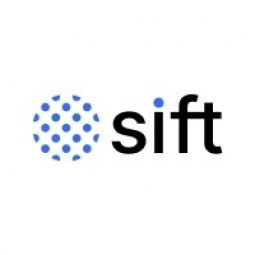公司规模
Large Corporate
地区
- Asia
- Pacific
国家
- Singapore
- Australia
- Hong Kong
- Indonesia
- Malaysia
- Philippines
- Taiwan
产品
- Sift Content Integrity
技术栈
- Machine Learning
- Automation
实施规模
- Enterprise-wide Deployment
影响指标
- Cost Savings
- Customer Satisfaction
- Productivity Improvements
技术
- 分析与建模 - 机器学习
- 应用基础设施与中间件 - API 集成与管理
适用行业
- 电子商务
适用功能
- 销售与市场营销
- 商业运营
用例
- 欺诈识别
- 网络安全
服务
- 数据科学服务
关于客户
Carousell is a Singapore-based peer-to-peer marketplace, where users can buy and sell effectively and easily, and sellers and buyers can connect privately. The company has both an app and a desktop site. In addition to Singapore, Carousell operates in Malaysia, Hong Kong, Taiwan, Philippines, Indonesia, and Australia, encompassing 250 million listings and 70 million transactions across all markets. As Carousell began to scale, they started to see fraudsters posting fake and spammy product listings for products that either arrived to the buyer not as described or never got delivered to the buyer at all.
挑战
As Carousell began to scale, they started to see fraudsters posting fake and spammy product listings for products that either arrived to the buyer not as described or never got delivered to the buyer at all. Carousell didn’t have a way of proactively preventing these listings and relied on user flags to spot and remove them. This meant that these listings not only posed a threat to good users until they were eventually removed but threatened to sully the reputation of the platform, as well. Repeat fraudsters were also finding ways to get back onto the platform even after Carousell deleted their accounts, and continued to post abusive, fake listings with their new accounts. Carousell limits the number of accounts a user may have to a maximum of two, but fraudsters were creating multiple accounts and Carousell was finding it difficult to keep track of them all. Carousell was using a rules-based fraud solution, but it was time-consuming to have to jump in and change rules every time fraudsters changed their tactics.
解决方案
When Carousell’s rules-based fraud vendor suddenly got acquired, they needed a new solution, fast. They considered a number of fraud prevention vendors that offered rules-based and machine learning solutions but chose Sift Content Integrity because they were impressed by the intuitive, user-friendly Sift Console and the ease of Workflows. After integration, it took only a couple of weeks for Carousell to start seeing results. Using Workflows, they were able to automatically block users once they exceeded a certain Sift Score (risk score based on behavioral attributes). They also automated account remittance for users who had more than one account, many of whom were using those accounts to commit fraud. Additionally, Carousell implemented a Workflow that would hide flagged listings while they awaited manual review, which helped keep potentially fraudulent listings out of sight and away from good users.
运营影响
数量效益

Case Study missing?
Start adding your own!
Register with your work email and create a new case study profile for your business.
相关案例.

Case Study
Digital Transformation of Atlanta Grout & Tile: An IoT Case Study
Atlanta Grout & Tile, a Tile, Stone & Grout restoration company based in Woodstock, Georgia, was facing challenges with its traditional business model. Despite steady growth over the years, the company was falling behind the web revolution and missing out on the opportunity to tap into a new consumer base. They were using independent software from different vendors for each of their department information and workforce management. This resulted in a lot of manual work on excel and the need to export/import data between different systems. This not only increased overhead costs but also slowed down their response to clients. The company also had to prepare numerous reports manually and lacked access to customer trends for effective business decision-making.

Case Study
IFFCO Boosts IT Performance and Innovates Agriculture with Oracle Cloud
Indian Farmers Fertiliser Cooperative Ltd. (IFFCO), the world’s largest manufacturer and marketer of fertilizers in the cooperative sector, was facing several challenges in its quest to innovate and improve the livelihood of farmers in India. The organization had recently launched a new product, nano urea, which brought new demands to IFFCO’s cloud computing needs. The organization needed a reliable cloud vendor to support the processes of 6–7 new manufacturing plants during the upcoming year, enhancing its production capability 300–350 million bottles of nano urea to meet increasing demand. IFFCO’s cloud adoption was driven by a need to innovate. The organization wanted capabilities for a dynamic business that can adapt to the changing needs of the market while growing fast. However, it was inhibited by rigid on-premises data center deployments and the overhead of maintaining legacy systems. IFFCO wanted to apply the elasticity and availability of cloud for improving overall performance of applications at lowest possible operational overhead. Lastly, IFFCO needed to provide the benefits of its technology to all its stakeholders, including employees, members, transporters, and farmers, some of whom have limited literacy. To accommodate all stakeholders, IFFCO wanted to add a voice interface to its applications.
Case Study
7-Eleven Philippines Enhances Customer Support with Freshdesk
7-Eleven Philippines, a pioneer of 24-hour convenience stores in the country, was facing challenges with its customer support system. The customer support was outsourced to an external vendor, which resulted in limited visibility into customer query patterns and performance metrics. The company had no transparency into the vendor's analytics and could not validate their reports. They also had no visibility into the volume of calls, number of abandoned calls, etc. due to the use of the vendor’s telephony solution. This lack of control and visibility into customer support led the team to decide to bring the entire function in-house. They began exploring helpdesk solutions that would enable them to build a strong in-house support team.

Case Study
Cloud4com: Delivering Efficient and Secure SAP HANA Cloud Services
Cloud4com, a leading provider of IT infrastructure and data center services, recognized the challenges and costs companies face when upgrading their on-premises infrastructure to meet the demands of SAP HANA in-memory technology. With the introduction of SAP HANA and SAP's decision to end support for all other databases from 2025, Cloud4com saw an opportunity to expand its services to a larger customer base. However, SAP HANA is a resource-intensive technology that requires companies to deploy powerful and costly hardware platforms. Businesses often overspecify the hardware, resulting in underutilization within the software's lifecycle. To capitalize on the opportunity presented by SAP HANA, Cloud4com aimed to create a cost-effective cloud platform for HANA and began working on obtaining the SAP Tailored Datacenter Integration (TDI) certification. A critical element was selecting the right operating system that would meet SAP’s standards and maximize the availability and performance of their customers’ SAP landscapes.
Case Study
BrewDog's Customer-Centric Approach in Times of Uncertainty
BrewDog, a Scottish-born craft beer business, faced a significant challenge during the COVID-19 pandemic. With their bars closed, the company saw a surge in online orders and customer inquiries. The customer service team, which handles all e-commerce customers and general brand-related queries, was overwhelmed with the sudden increase in activity. The team was dealing with up to 2000 tickets a day during the lockdown, a significant jump from the usual 150-200 tickets. The fast-paced nature of BrewDog's operations, with new projects and initiatives launching daily, further complicated the situation. The company's existing processes, which were fairly manual, were not equipped to handle this surge in volume. The challenge was to quickly adapt and streamline their customer service operations to continue providing excellent service during these uncertain times.

Case Study
Global Timeshare Company Accelerated Its Digital Marketing and E-commerce Engine
The client's go-to-market teams weren't accustomed to attracting new buyers in the digitally networked world. These prospects come from an evolving demographic — millennials and Gen Z who were increasingly adopting the new ways of evaluating options online and making reservations.There were three key challenges that the client was facing.Outdated and aging systems (legacy core)Inadequate web presence and e-Lack of predictive customer understanding and analytics







